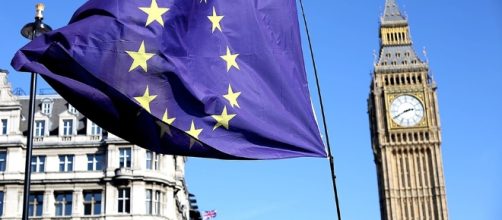A European banking expert has suggested the European Union not to offer a 'soft' Brexit deal to the UK as it would burden them with financial costs.
Bob Lyddon warned Brussels Britain would fall back on World Trade Organisation rules if there is a high price for tariff-free Single Market access.
His comment flies in the face of David Cameron's advice to the Prime Minister that Britain should pursue a 'softer' Brexit deal.
Speaking to RT, Mr. Lyddon said a 'soft' EU exit means the UK would be swamped in detail about which parts of EU membership they wish to retain or scrap.
A consensual approach
He said if the price for gaining tariff-free access to the Single Market was higher than WTO rules, this would result in the collapse of a trade deal between the UK and the EU.
This is despite Mr. Cameron saying Theresa May should develop a more consensual approach with Labour in agreeing on a 'soft' Brexit.
Speaking to a business conference in Poland since the Conservatives lost their parliamentary majority last Friday, he said the Tory leader should listen to other parties over Britain's EU exit.
He predicts this will mean Parliament will now have a greater say over upcoming negotiations with Brussels to agree on a Brexit deal since Mrs May triggered Article 50, the mechanism to leave the EU in the 2007 Lisbon Treaty, last March.
The former prime minister said the election of 13 new Scottish Conservative MPs will enable the leader of the Scottish Tories, Ruth Davidson, a significant role in the negotiations.
'An open Brexit'
Since Friday's general election result, Ms Davidson has called on the Prime Minister to agree on an 'open Brexit' with the EU.
This would result in the UK remaining a member of the Customs Union, the European Court of Justice having a limited say over British law, and a trade deal that allows Britain access to the Single Market in exchange for accepting the free movement of people.
This would contradict all the campaign promises pro-Brexit group Vote Leave made during last year's EU Referendum.
Former Tory prime minister and staunch Europhile, John Major, joined a growing list of critics of the Prime Minister's 'hard' Brexit strategy by suggesting the electorate rejected that approach last Friday.
But Mrs May has refused to enter into discussions with the other parties to agree on a consensus for Britain's EU exit.
Many Tory Brexiteers fear that the Conservative leader's reduced majority means her plans to leave the EU may be undermined.
'Get the best deal for Britain'
Many figures, like Michael Gove, have urged her to stick to her principles.
Michael Gove said those who voted to remain last year must also be included in the conversation about how to get the best deal for Britain.
Steve Baker, a Conservative MP who has recently been appointed as a Brexit minister, said he wants an EU exit consistent with the principles of taking back control of Britain's laws, borders and money.
Meanwhile, Labour figures continue to contradict each other over their party's official position on the issue.
Shadow chancellor John McDonnell told ITV's Robert Peston that under a Labour government, the UK will be leaving the Single Market.
This led to Tony Blair's former press secretary, Alastair Campbell, tweeting: 'I suspect some of the young people voting Labour and voting for the first time were hoping for something a bit less "Brextremist" from Jeremy Corbyn and John McDonnell.'
But staunch Corbyn ally Barry Gardiner said his party was committed to reforming Britain's membership of the Single Market and attacked Mrs May for failing to consider that option.
Yet he appeared on The Daily Politics on Monday and said he supports leaving the Single Market.
But another key Corbyn ally, shadow business secretary Rebecca Long-Bailey, described it as a 'moot point' for her party.
She said she supports the free movement of workers from Europe.
This is despite Labour campaigning on a pledge to pull Britain out of the EU in its entirety and to support the end of unlimited immigration from Europe.

